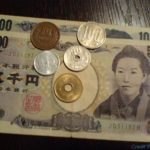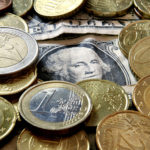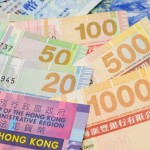Australian dollar gained against its US counterpart on Monday ahead of a report, which may show Australian trade balance produced a lesser deficit than expected in November, while a private report stated that Chinese non-manufacturing activity increased at a slower rate in December.
AUD/USD touched a daily high at 0.8982 at 1:30 GMT, after which consolidation followed at 0.8962, gaining 0.15% for the day. Support was likely to be received at January 3rd low, 0.8885, while resistance was to be met at January 3rd high, 0.9004.
Earlier in the day Australian dollars advance against the greenback was trimmed after HSBC Holdings Plc and Markit Economics reported that their Purchasing Managers Index (PMI) for China slowed down to a reading of 50.9 in December from 52.5 in November. However, the result still pointed to expansion in the sector of services. This report is of certain relevance for the Aussie, because China is Australias largest export market.
“Despite the moderation of the headline China Services PMI index, which reflected slower new business growth, labor market conditions improved for the fourth month in a row. We expect the steady expansion of manufacturing sectors to lend support to service sector growth. Moreover, the implementation of reforms such as lowering the entry barriers for private business in service sectors and the expanded VAT reforms should help to revitalize service sectors in the year ahead”, said HSBC chief China economist Qu Hongbin, cited by Investing.com.
At the same time, the Australian Industry Group (AIG) said on Monday that its Performance of Services Index for Australia slid to the lowest level since August 2013 in December. The index came in at a reading of 46.1, following a reading of 48.9 in November. AIG Chief Executive, Innes Willox, stated that if nations sector of services does not recover rapidly, pressure will build on the Reserve Bank of Australia to reduce its benchmark interest rate further, while the goal of fiscal consolidation may appear to be more difficult to achieve in the shorter-term.
However, traders saw a 6% probability that the Reserve Bank of Australia will cut borrowing costs at its next policy meeting in February, while a month ago the odds of such a move were 18%.
The deficit on Australias trade balance probably narrowed to 0.250 billion AUD in November from a deficit of 0.529 billion AUD in October, according to the median estimate of experts. The Australian Bureau of Statistics is to release the official figures tomorrow.
The yield on Australian 10-year government bonds rose three basis points, or 0.03 percentage point, to reach 4.38%, or the highest level since December 10th, as traders trimmed their bets that the Reserve Bank of Australia (RBA) would reduce its benchmark interest rate from an already record-low level of 2.50%.
Meanwhile, activity in the US sector of services probably increased, with the corresponding PMI rising to a reading of 54.5 in December from 53.9 in the preceding month. The Institute for Supply Management (ISM) will reveal the official data at 15:00 GMT today. A better-than-projected reading would certainly provide support to greenbacks demand.
Elsewhere, the Australian currency was gaining against the euro, with EUR/AUD cross down 0.26% on a daily basis to trade at 1.5159 at 7:50 GMT. AUD/NZD pair was advancing 0.26% to trade at 1.0838 at 7:50 GMT.





